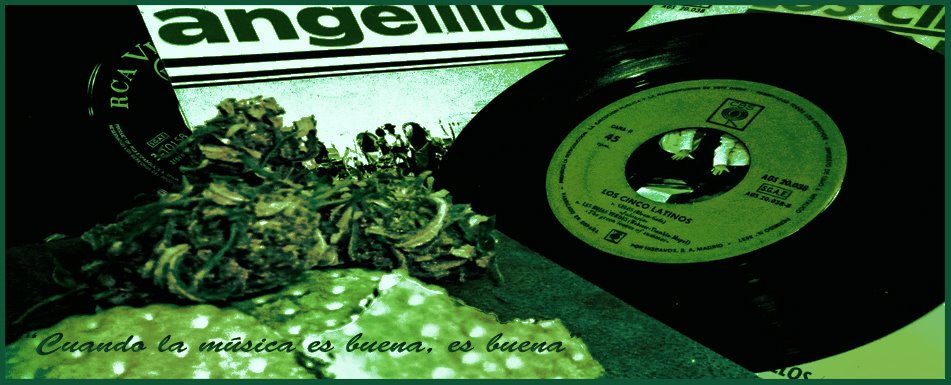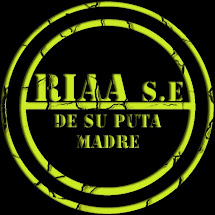
THE RASCALS
(Also The Young Rascals)
"The Rascals Anthology"
RHINO RECORDS - 1992
Felix Cavaliere : Vocals & Keyboards
Gene Cornish : Guitar & Vocals
Dino Danelli : Drums
Robert Popwell : Bass
Paradigma del Soul de "Ojos Azules" (lease Soul facturado por no negros)
Grupo formado por cuatro chicos de la costa Este de U.S.A., en concreto de New Jersey que grabaron desde mediados de los 60's hasta los primeros 70's una serie de inolvidables joyas, siendo influencia para otras bandas que llegarian despues ( Vanilla Fudge podria ser una de ellas?)
(Adjunto texto extraido de All Music)
A soulful New York bar band infected by the exuberance of the Beatles, the Rascals opened their cover of the Olympics' "Good Lovin' " with a simple hook: singer Felix Cavaliere's "One! Two! Three!" count-off. Their jacked-up live rendition was captured by co-producer Dowd, who urged them not to mess with it. "We weren't too pleased with our performance," Cavaliere admitted.
"It was a shock to us when it went to the top of the charts."
(vocals), Felix Cavaliere (keyboard, vocals), Gene Cornish (guitar) and Dino Danelli (drums) started the band in Brigati and Danelli's native state New Jersey.
Three-quarters of the group - Brigati, Cavaliere and Cornish - had previously been members of Joey Dee and the Starliters. Eddie's brother, David Brigati, an original Starliter, helped arrange the vocal harmonies and sang backgrounds on many of the group's recordings (informally earning the designation as the Fifth Rascal). When Atlantic Records signed them, they discovered that another group (Borrah Minnevitch's and Johnny Puleo's Harmonica Rascals) objected to the release of records under the name Rascals. To avoid conflict, manager Sid Bernstein decided to rename the group the Young Rascals.
Their first television performance was on Hullabaloo on February 27, 1965, where they performed their debut single, "I Ain't Gonna Eat Out My Heart Anymore". The track was actually more successful in Canada where it reached #23. This modest hit was followed by the
US/Canada #1 single "Good Lovin'" (1966, originally recorded by The Olympics in 1965).
Their first two singles were covers, but after that the band's songwriting team of Brigati and Cavaliere began providing most of their songs, and the hits kept coming for the next two years. Their immediate followups to "Good Lovin'", including "I've Been Lonely Too Long", "You Better Run", were only modest hits, but "Groovin"" (#1 US/Canada, 1967), returned them to the top of the charts. After that, the group reeled off a succession of US top 20 US hits, including "It's Wonderful", "A Girl Like You", "How Can I Be Sure?" and "A Beautiful Morning" (1968). The band was exceptionally popular in Canada, where "A Girl Like You", "How Can I Be Sure?" and "A Beautiful Morning" all reached #1. However they struggled in the UK, where they only twice reached the top 75 (both times in 1967) with "Groovin'" (#8) and "A Girl Like You" (#35).
Bruce Eder, writing for allmusic.com, rates the album, "Groovin" as the band's best, noting the record's soulful core and innovative use of jazz and Latin instrumental arrangements. It also boasted the monster hit of the same name.
In early 1968, the group dropped the "Young" from their name.
Some fans prefer the Rascals' 1968 album Once Upon A Dream, which featured several leads each from Brigati and Cavaliere. Though the only success for a single on the album was "It's Wonderful" (#20 on the US charts, #7 in Canada), the album utilized frequent instrumentals,
and peaked at #9 on the album charts. It was praised by some critics for such songs as "Rainy Day", "My World" and the title track. Understandably, the song "My Hawaii" became a top of the charts hit in Hawaii.
Time Peace: The Rascals' Greatest Hits, released in mid-1968, topped the album chart and became the group's best-selling album. The same year, "People Got to Be Free", a horn-punctuated plea for racial tolerance (the band was known for refusing to tour on segregated bills) became their third and final US #1 single, and their sixth and final Canadian #1. It was also their final US Top Ten hit, although they remained a Canadian top 10 act for the next few years.
Singles "A Ray of Hope", "Heaven", "See" and "Carry Me Back" were all modest US hits during 1968/69 for The Rascals, all hitting the top 40, though none higher than #24. In Canada, however, the Rascals were still major stars – all these songs went top ten, completing a run
of 11 straight Canadian top ten hits for The Rascals from 1967 to 1969.
December 1969's "Hold On" broke the run of top 40 US singles for the Rascals, stalling at #51, as well as the run of Canadian top tens, peaking at #22.
During their period of greatest celebrity, the band's influence on aspiring R & B-flavored white acts was without equal, especially in the northeast. Bands incorporating (sometimes to the point of parody) the Rascals' full-on stage demeanor and energy as well as the intense, hyper-dramatic vocalizing, drumstick-spinning gyrations and heavy bottom-end rhythm also achieved some prominence: the Vagrants (featuring Leslie West, later of Mountain) , the Rich Kids, and the
epitome of over-the-top funky psychedelia, the Vanilla Fudge, all owed their styles to the Rascals' synthesis of show-biz and soul.
In 1970, Brigati left the group, followed by Cornish in 1971. The last album with them as active members was Search & Nearness (hitting #198 in the US), which featured Brigati's last performances as a member singing lead on the Cornish-penned "You Don't Know", drummer
Danelli's composition "Fortunes" and their cover of The Box Tops' hit "The Letter". The only single release from the album was the spiritually-themed "Glory, Glory" (#58 US, #40 Canada), with backing vocals by The Sweet Inspirations.
Cavaliere shifted towards more jazz and gospel influenced writing; he and Danelli released two more albums on Columbia Records as The Rascals, Peaceful World (U.S. #122) and The Island Of Real (U.S. #180), using Robert Popwell and Buzzy Feiten on bass and guitar respectively, and a new singer named Annie Sutton. These albums didn't sell as well as their earlier work, the associated singles didn't chart any higher than #95 US, and the group finally disbanded in 1972.
Cavaliere released several solo albums throughout the 1970s. Brigati, with his brother David, released Lost in the Wilderness in 1976. Cornish and Danelli worked together in other groups, including Bulldog and Fotomaker. In 1982, Cavaliere and Danelli joined Steve Van Zandt in Little Steven and the Disciples of Soul for the group's first two albums.
After appearing at Atlantic Records 40th Anniversary Celebration on 5/14/88, The Rascals reunited (with Cavaliere, Cornish, and Danelli) for a brief reunion tour in 1988; Eddie Brigati opted not to participate in it. The reunion group featured an expanded lineup that included Mel Owens(in Brigati's place) on vocals and percussion, Steve Mackey on bass, Ed Mattey on guitar,
Dena Iverson on backup vocals and a horn section from Nashville to beef up the sound. The reunion did not last beyond the end of the year.
After that, Cavaliere returned to his solo career and in the 90s there were two factions touring: The New Rascals (featuring Cornish & Danelli) and Cavaliere, who sometimes called his grouping Felix Cavaliere's Rascals.
The New Rascals lasted only a short time in the 90s but returned to the road again in 2006 with two new members:
Bill Pascali (formerly of Vanilla Fudge) on vocals and keyboards and Charlie Souza on bass and vocals.
The (Young) Rascals were inducted into the Rock and Roll Hall of Fame on May 6, 1997. Steve Van Zandt gave the induction speech and presented the award. For the first time in years, all four original members appeared together. For their "jam session" (including David Brigati), they performed "Good Lovin'", "Groovin'", "How Can I Be Sure?", and "People Got To Be Free".
The Rascals were also inducted into the Vocal Group Hall of Fame in 2005.
LOOK FOR: T.Y.R 1-2
.

domingo, 10 de mayo de 2009
Dia G 10.05.09 (4) - The Rascals - The Rascals Anthology (1992 UK)
Etiquetas:
1992,
Dia de la Galleta,
Pop/Rock,
Rock,
The Rascals
Suscribirse a:
Enviar comentarios (Atom)
.jpg)

















.jpg)


























1 comentario:
Nuevo pass (refresco): katetoskopio/therascals
Publicar un comentario